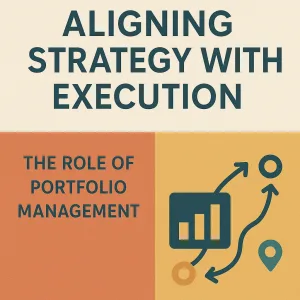Introduction to PMP Certification
In the dynamic field of project management, the Project Management Professional (PMP) certification stands out as a hallmark of excellence and a vital credential for aspiring leaders. This certification, offered by the Project Management Institute (PMI), is designed to validate the skills and knowledge necessary to lead and direct projects effectively.
Definition of PMP Certification
The PMP certification is a globally recognized credential that demonstrates a project manager’s competence in leading and managing projects. It encompasses a wide range of project management principles, methodologies, and best practices, equipping professionals with the tools needed to navigate complex project environments. By obtaining this certification, project managers can showcase their ability to manage project teams, communicate effectively with stakeholders, and deliver successful project outcomes.
Overview of the Project Management Institute (PMI)
The Project Management Institute (PMI) is a leading professional association for project managers, established to advance the profession through advocacy, collaboration, education, and research. PMI is responsible for developing the PMP certification and maintaining its rigorous standards. The institute provides resources, networking opportunities, and continuing education to help project managers stay current with industry trends and best practices. By aligning with PMI, certified professionals gain access to a vast network of peers and resources that can enhance their careers.
Importance of Certification in the Project Management Field
The significance of PMP certification in the project management field cannot be overstated. It serves as a benchmark for project management excellence, distinguishing certified professionals from their non-certified counterparts. Here are some key reasons why PMP certification is essential:
- Enhanced Credibility: PMP certification enhances a project manager’s credibility, demonstrating a commitment to the profession and adherence to industry standards.
- Career Advancement: Many organizations prioritize hiring or promoting individuals with PMP certification, as it indicates a higher level of expertise and leadership capability.
- Increased Earning Potential: Studies have shown that PMP-certified professionals often command higher salaries compared to their non-certified peers, reflecting the value that organizations place on this credential.
- Leadership Development: The PMP certification process emphasizes leadership skills, strategic thinking, and effective communication, all of which are crucial for managing teams and driving project success.
PMP certification is not just a credential; it is a key to unlocking leadership opportunities in project management. By understanding its definition, the role of PMI, and its importance in the field, current project managers can better appreciate how this certification can propel their careers and enhance their leadership capabilities.
Understanding Leadership in Project Management
The distinction between management and leadership is crucial. While management often focuses on processes, tasks, and the efficient use of resources, leadership is about inspiring and guiding teams toward a common goal. This section explores the significance of leadership within project management, particularly for those pursuing or holding a Project Management Professional (PMP) certification.
Distinction Between Management and Leadership
- Management is primarily concerned with planning, organizing, and controlling resources to achieve specific objectives. It involves setting goals, developing plans, and ensuring that tasks are completed efficiently.
- Leadership, on the other hand, emphasizes vision, influence, and motivation. Leaders inspire their teams, foster collaboration, and create an environment where individuals feel empowered to contribute their best efforts. This distinction is vital for project managers who aspire to elevate their roles from mere task managers to influential leaders.
The Role of a Project Manager as a Leader
A project manager is not just a facilitator of project tasks; they are also a leader who plays a pivotal role in shaping the project environment. The responsibilities of a project manager as a leader include:
- Vision Setting: A project manager must articulate a clear vision for the project, aligning team members with the project’s goals and objectives.
- Team Empowerment: Effective project managers empower their teams by delegating responsibilities, encouraging autonomy, and fostering a sense of ownership among team members.
- Conflict Resolution: Leadership in project management involves navigating conflicts and challenges that arise within teams, ensuring that issues are addressed constructively and collaboratively.
- Stakeholder Engagement: A project manager must engage with stakeholders, understanding their needs and expectations while effectively communicating project progress and challenges.
Key Leadership Qualities Beneficial for Project Managers
To excel as a leader in project management, certain qualities are essential:
- Emotional Intelligence: Understanding and managing one’s emotions, as well as empathizing with team members, is crucial for building strong relationships and fostering a positive team dynamic.
- Communication Skills: Clear and effective communication is vital for conveying ideas, expectations, and feedback. A project manager must be able to listen actively and articulate thoughts clearly to all stakeholders.
- Adaptability: The ability to adapt to changing circumstances and respond to unforeseen challenges is a hallmark of effective leadership. Project managers must remain flexible and open to new ideas and approaches.
- Decision-Making: Strong leaders are decisive and can make informed decisions quickly, balancing the needs of the project with the capabilities of the team.
- Visionary Thinking: A successful project manager must think strategically, anticipating future challenges and opportunities while guiding the team toward long-term success.
PMP certification not only equips project managers with essential skills and knowledge but also fosters the leadership qualities necessary for guiding teams effectively. By understanding the nuances of leadership within project management, certified professionals can enhance their influence and drive project success, ultimately positioning themselves for advanced leadership roles in their organizations.
How PMP Certification Enhances Leadership Skills
PMP (Project Management Professional) certification is widely recognized as a benchmark for project management excellence. It not only validates a project manager’s knowledge and skills but also significantly enhances their leadership capabilities. Here are the key leadership skills developed through the PMP certification process:
- Critical Thinking and Decision-Making Skills: PMP certification equips project managers with the ability to analyze complex situations and make informed decisions. The rigorous training encourages a systematic approach to problem-solving, enabling leaders to evaluate options critically and choose the best course of action. This skill is essential for navigating the uncertainties and challenges that arise in project management.
- Effective Communication and Team Management: Communication is a cornerstone of successful project management. PMP certification emphasizes the importance of clear and concise communication with stakeholders, team members, and clients. It teaches project managers how to convey ideas effectively, listen actively, and foster an environment of collaboration. This skill is crucial for building strong teams and ensuring that everyone is aligned with project goals.
- Conflict Resolution and Negotiation Techniques: Conflicts are inevitable in any project setting. PMP certification provides project managers with strategies to address and resolve conflicts constructively. It covers negotiation techniques that help leaders mediate disputes and find mutually beneficial solutions. This ability to manage conflicts not only enhances team dynamics but also contributes to a more positive work environment.
- Strategic Planning and Risk Management Capabilities: A key aspect of leadership in project management is the ability to plan strategically and manage risks effectively. PMP certification trains project managers to identify potential risks, assess their impact, and develop mitigation strategies. This proactive approach to risk management ensures that projects stay on track and that leaders can make strategic decisions that align with organizational objectives.
Obtaining a PMP certification is not just about gaining a credential; it is a transformative process that develops essential leadership skills. By enhancing critical thinking, communication, conflict resolution, and strategic planning abilities, PMP certification prepares project managers to take on leadership roles and drive their teams toward success.
Benefits of PMP Certification for Aspiring Leaders
PMP (Project Management Professional) certification is a globally recognized credential that signifies a project manager’s expertise and commitment to the profession. For current project managers aiming for leadership roles, obtaining a PMP certification can be a transformative step. Here are some key benefits that highlight how this certification can enhance leadership skills and career prospects:
- Increased Credibility and Recognition in the Industry: Achieving PMP certification demonstrates a high level of knowledge and experience in project management. It signals to employers and peers that you possess the skills necessary to lead complex projects effectively. This recognition can enhance your professional reputation and establish you as a credible leader within your organization and the broader industry.
- Enhanced Career Advancement Opportunities: PMP certification can significantly improve your chances of being promoted to leadership positions. Many organizations prioritize candidates with this certification when filling managerial roles, as it indicates a commitment to best practices and a thorough understanding of project management methodologies. This can open doors to higher-level positions that require strong leadership capabilities.
- Stronger Network of Professionals and Peers: Becoming PMP certified connects you with a vast network of professionals in the project management field. This network can provide valuable resources, mentorship opportunities, and support as you navigate your career. Engaging with other certified professionals can also lead to collaborative opportunities and insights that can enhance your leadership skills.
- Higher Earning Potential in Leadership Positions: PMP certification often correlates with higher salaries and better compensation packages. According to various industry surveys, project managers with PMP certification tend to earn significantly more than their non-certified counterparts. This financial incentive can be a motivating factor for current project managers looking to advance into leadership roles, as it reflects the value that organizations place on certified professionals.
Obtaining a PMP certification not only enhances your project management skills but also equips you with the leadership qualities necessary to excel in higher-level roles. By investing in this certification, you position yourself as a leader in the field, ready to take on new challenges and drive successful project outcomes.
Real-World Applications of Leadership Skills from PMP Certification
PMP (Project Management Professional) certification is not just a credential; it is a transformative experience that equips project managers with essential leadership skills. These skills are crucial for navigating the complexities of modern projects and leading teams effectively. Below are key points illustrating how PMP certification fosters leadership capabilities and their real-world applications.
Examples of Leadership Challenges Faced in Projects and How PMP Skills Address Them
- Challenge: Team Conflict Resolution
- In many projects, conflicts arise due to differing opinions and work styles. PMP training emphasizes conflict resolution techniques, such as active listening and negotiation skills. Project managers can apply these techniques to mediate disputes, fostering a collaborative environment that enhances team cohesion and productivity.
- Challenge: Stakeholder Engagement
- Engaging stakeholders is critical for project success. PMP certification teaches project managers how to identify stakeholders, assess their influence, and develop tailored communication plans. This proactive approach ensures that stakeholders remain informed and invested in the project, reducing resistance and increasing support.
- Challenge: Change Management
- Projects often encounter changes in scope or direction. PMP-certified leaders are trained in change management methodologies, enabling them to guide their teams through transitions smoothly. By employing structured change management processes, they can minimize disruption and maintain team morale.
Feedback from Certified Professionals on the Impact of PMP on Their Leadership Journey
- Testimonial: Emily Chen, Senior Project Manager
- “The PMP certification was a game-changer for me. It not only enhanced my technical skills but also transformed my approach to leadership. I learned how to inspire my team and manage conflicts effectively, which has been invaluable in my career progression.”
- Testimonial: David Lee, Program Manager
- “After obtaining my PMP, I noticed a significant shift in how I lead projects. The certification provided me with a framework for decision-making and stakeholder management that I apply daily. It has opened doors to leadership roles I never thought possible.”
- Testimonial: Jessica Patel, Operations Manager
- “The leadership skills I developed through the PMP certification have been instrumental in my ability to drive projects forward. I feel more confident in my decision-making and my ability to motivate my team, which has led to better project outcomes.”
PMP certification is a powerful tool for project managers aspiring to leadership roles. The skills developed through this certification not only enhance individual capabilities but also contribute to the overall success of projects. By applying these leadership skills in real-world scenarios, certified professionals can navigate challenges effectively and lead their teams to achieve remarkable results.
Steps to Obtain PMP Certification
Achieving Project Management Professional (PMP) certification is a significant milestone for project managers aspiring to enhance their leadership skills and advance their careers. This section outlines the essential steps to obtain PMP certification, ensuring that current project managers are well-prepared for the journey ahead.
Eligibility Requirements for PMP Certification
To qualify for PMP certification, candidates must meet specific educational and professional experience criteria:
- Educational Background: Candidates must have either:
- A four-year degree (bachelor’s or global equivalent) along with at least 36 months of leading projects and 35 hours of project management education, or
- A high school diploma or an associate degree (or global equivalent) with at least 60 months of leading projects and 35 hours of project management education.
- Project Management Experience: This experience should include leading and directing projects, which is crucial for demonstrating the practical application of project management principles.
Overview of the Application Process
The application process for PMP certification involves several key steps:
- Create a PMI Account: Candidates must first create an account on the Project Management Institute (PMI) website.
- Complete the Application: Fill out the application form, detailing your project management experience and education. This includes listing the projects you have led and the roles you played.
- Submit the Application: After completing the application, submit it for review. PMI will evaluate your eligibility based on the information provided.
- Payment: Once approved, candidates must pay the examination fee, which varies depending on whether they are PMI members or non-members.
- Schedule the Exam: After payment, candidates can schedule their exam date and location through the PMI website.
Preparation Strategies and Recommended Resources
Effective preparation is crucial for success in the PMP exam. Here are some strategies and resources to consider:
- Study Guide: Utilize the PMBOK® Guide (Project Management Body of Knowledge) as the primary reference. This guide outlines the standards and practices recognized in project management.
- Online Courses: Enroll in PMP preparation courses offered by various platforms, such as Coursera, Udemy, or PMI’s own offerings. These courses often provide structured learning and practice exams.
- Study Groups: Join or form study groups with fellow project managers. Collaborative learning can enhance understanding and retention of complex concepts.
- Practice Exams: Take advantage of practice exams to familiarize yourself with the exam format and types of questions. This will help build confidence and identify areas needing further study.
Tips for Passing the PMP Exam
To increase the likelihood of passing the PMP exam, consider the following tips:
- Understand the Exam Format: The PMP exam consists of 180 questions, including multiple-choice, multiple responses, and fill-in-the-blank questions. Familiarize yourself with the format to reduce anxiety on exam day.
- Time Management: Practice managing your time effectively during the exam. Allocate time for each question and avoid spending too long on any single item.
- Focus on Key Concepts: Pay special attention to the five process groups (Initiating, Planning, Executing, Monitoring and Controlling, and Closing) and the ten knowledge areas outlined in the PMBOK® Guide.
- Stay Calm and Confident: On the day of the exam, ensure you are well-rested and maintain a positive mindset. Confidence can significantly impact performance.
By following these steps and utilizing the recommended resources, current project managers can successfully navigate the path to obtaining PMP certification, thereby enhancing their leadership capabilities and positioning themselves for advanced roles in project management.
Conclusion: The Future of Leadership in Project Management
The role of a project manager is increasingly recognized as a leadership position that requires a unique blend of skills and competencies. Obtaining a Project Management Professional (PMP) certification is a significant step toward developing these essential leadership skills. Here’s a recap of the key leadership skills gained through PMP certification and why investing in this professional development is crucial for aspiring leaders in the field.
- Enhanced Leadership Skills: PMP certification equips project managers with critical leadership skills such as effective communication, team motivation, conflict resolution, and stakeholder management. These skills are vital for guiding teams through complex projects and ensuring alignment with organizational goals. By mastering these competencies, certified professionals can lead with confidence and inspire their teams to achieve high performance.
- Strategic Thinking and Decision-Making: The PMP curriculum emphasizes strategic planning and decision-making, enabling project managers to think critically about project objectives and outcomes. This strategic mindset is essential for leaders who must navigate challenges and make informed decisions that impact the success of their projects and organizations.
- Risk Management and Problem-Solving: Effective leaders are adept at identifying potential risks and developing mitigation strategies. PMP certification provides the tools and frameworks necessary for proactive risk management, allowing project managers to anticipate issues and respond effectively, thereby safeguarding project success.
- Encouragement to Invest in Professional Development: As the demand for skilled project managers continues to grow, investing in PMP certification is a proactive step toward career advancement. It not only enhances one’s skill set but also demonstrates a commitment to professional growth and excellence. For current project managers aiming for leadership roles, pursuing this certification can significantly enhance their credibility and marketability in the job market.
- Evolving Role of Project Managers: The role of project managers is shifting from traditional task-oriented positions to strategic leadership roles within organizations. As businesses increasingly rely on project-based work to drive innovation and growth, project managers are expected to take on more significant leadership responsibilities. PMP certification prepares professionals to meet these evolving demands, positioning them as key contributors to their organizations’ success.
The PMP certification is more than just a credential; it is a gateway to developing the leadership skills necessary for success in project management. As the field continues to evolve, those who invest in their professional development through certification will be well-equipped to lead teams, drive projects to completion, and contribute to their organizations’ strategic objectives. Embracing this opportunity not only enhances individual careers but also strengthens the overall effectiveness of project management as a discipline.
Find out more about Shaun Stoltz https://www.shaunstoltz.com/about/.
This post was written by an AI and reviewed/edited by a human.



